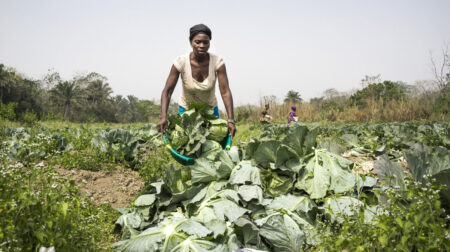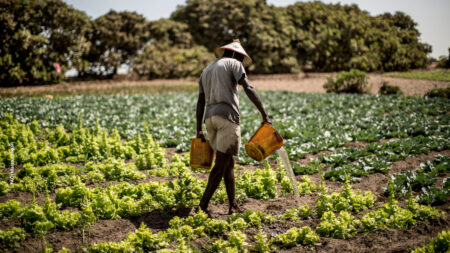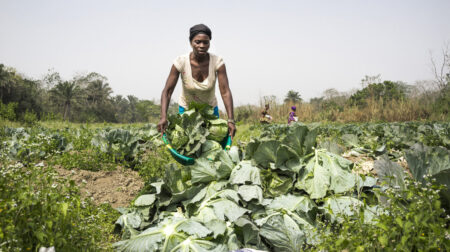Tanzania’s Ministry of Agriculture has begun cementing its foothold on horticulture activities across Tanzania.
The ministry has just concluded a meeting with horticultural farmers and products exporters, to address taxing and policy drawbacks related to the sub-sector.
The meeting catapulted rather vital issues for the development of the sector, particularly converging Tanzania Ports Authority (TPA) and Tanzania Revenue Authority (TRA) players, but also, gave a path to the possibility of ushering a three-year plan that will be associated with a special managing body.
According to the ministry, the meeting attracted vital players from crucial ministries, including—finance and planning, industry and trade, ports authority and farmers.
Speaking at the meeting, the Deputy Ministry of Agriculture, Hussein Bashe, stressed that the meeting root agenda was to highlight various challenges affecting the sub-sector and respective measures to address them.
Per Tanzania’s National Bureau of Statistics, second-quarter report—the agricultural sector growth rate stood at 4 per cent, while the Bank of Tanzania, quarterly economic report, showed that value of non-traditional exports increased to USD 894.3 million from USD 799.4 million in the quarter ending June 2018, with all major export categories improving except horticulture.
“We met with various horticulture stakeholders, they aired out challenges they face openly, and we have agreed to set up a minor-team, that will come up with recommendations to be worked upon in one month by the government,” Deputy Minister said
According to the deputy Minister, the main aim of the meeting was to strike cooperation, which will erase present underlying challenges facing horticulture in Tanzania.
“For instance, they [TPA] tell us that, it takes about 10 days to process the exportation of avocados containers, aligned on the same path with a copper container, 10 days will eventually make avocados get spoiled, that’s why people use the Mombasa port” He added.
However, the efforts could also prove rather tangible merits not only for the sub-sector, but also induce a multiple effect to other traditional goods exported, as the BoT reports point to a different path, whereas the report shows that: Traditional goods exports declined to USD 563.5million in the year ending September 2019 from USD 1,160.8 million in the corresponding period in 2018, as all traditional goods declined, save for coffee and tea.
“TPA gave us their commitment that they will establish a special department to deal swiftly with all affairs related to horticultural products shipping, which will involve TPA and TRA. They also highlighted on packaging materials issues and we believe that after a month, they will come up with a clear road map on how we can take on, the rest three to five years of the sub-sector,” Deputy Minister commented.
On the other side of the aisle, Tanzania’s Parliament Agriculture, Livestock and Water Committee chairman, Mr. Mahmoud Mgimwa, gave a clear emphasis on the role of horticulture in fortifying farmers economies and particularly addressing underlying drawbacks facing the sub-sector, including a series of fees.
In the same context, Ministry of Finance and Planning, Permanent Secretary, Mr. Doto James, highlighted on several investors lined up within the horticulture business, who have not delivered rather tangible results after being awarded farming loans.
“We anticipate that people took loans and invested the funds into other ventures quite contrary to what was indicated because our investigation showed a completely different thing. We have already confiscated one farm of a $ 15.6 million loan defaulter,”
Moreover, other stakeholders displayed various sets of setbacks that hinder their operations over space and time, including access to markets and transportation of horticulture products from farmlands to markets.
READ: Floriculture land to reach 2,000 ha by 2018 as horticulture exports rise to $10m – NAEB
According to Tanzania Horticultural Association member, at present Tanzania farmers, rely on neighboring countries airports to export their products abroad, but also—using Mombasa port for shipping. The most pristine agenda TAHA brought forth, was fenced around the elimination of unnecessary charges that limit










